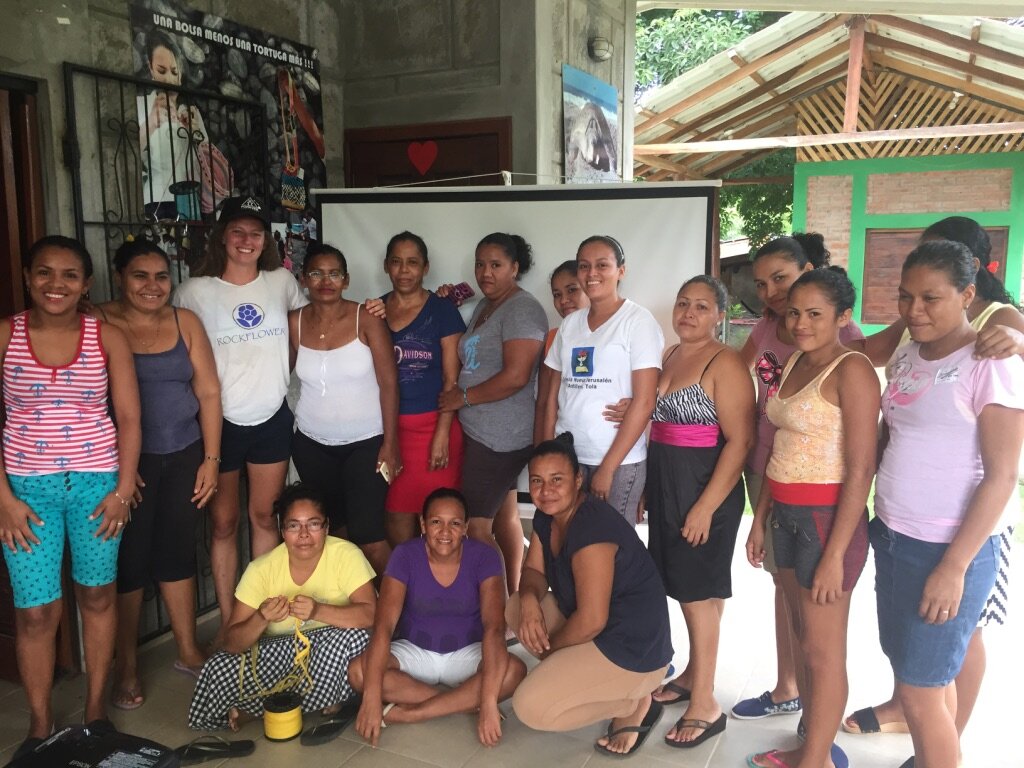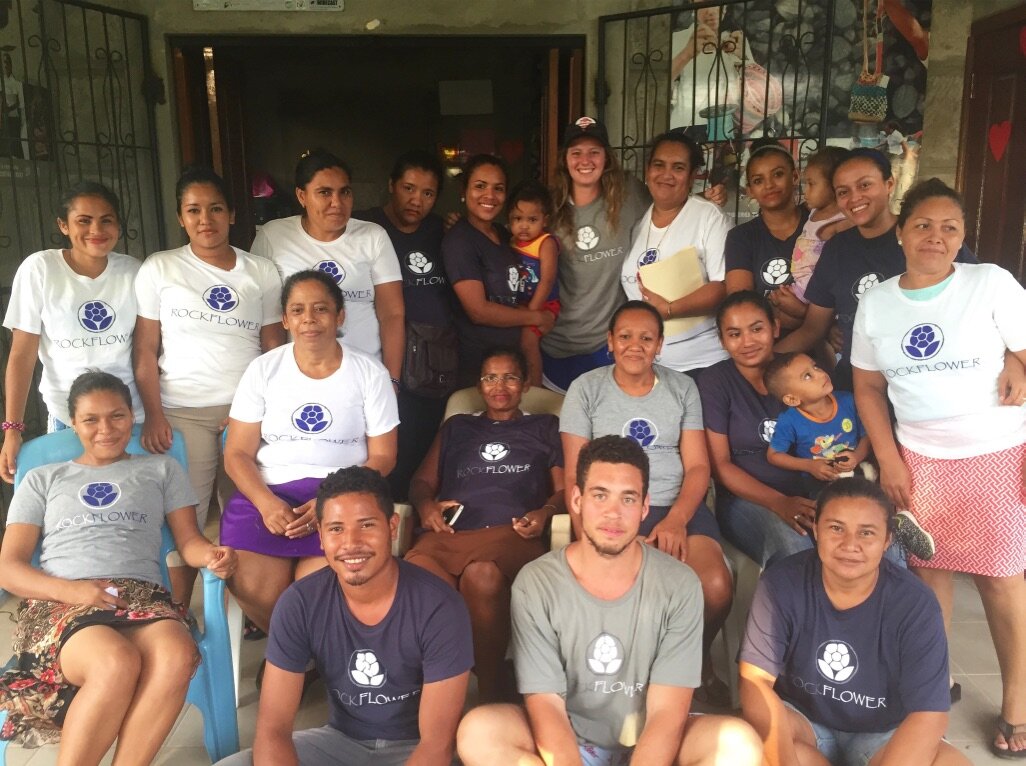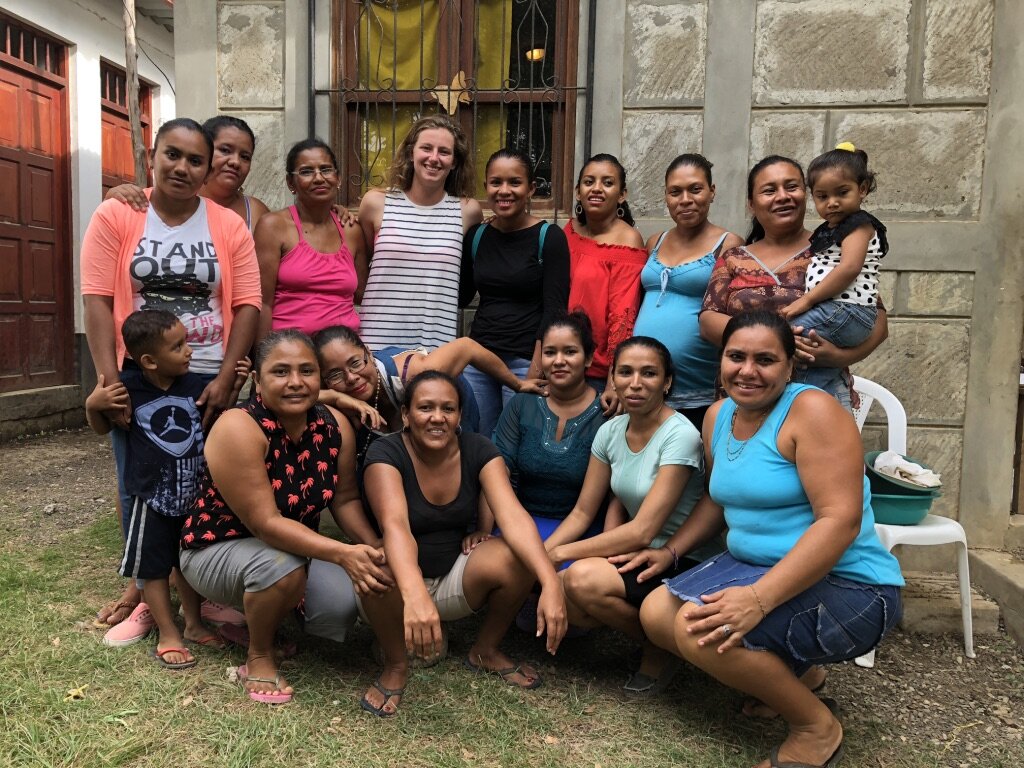Guest Blog by Francesca Ward, Global Ambassador for Rockflower
Two Years Ago
In April of 2017, I was invited to come down to Nicaragua at the end of the school year to join two good friends from UBC on a project they were about to start. The project was called Casa Congo, a conservation organization focused on empowering local communities through sustainable practices, started by a group of like-minded friends from all corners of the world. Luca knew I was a passionate surfer and also served on Rockflower’s Youth Advisory Board, so he asked if I could help start the surf program with them, and at the same time look at how to help start a women’s empowerment program. I didn’t speak a word of Spanish, had never been to a developing country, and hadn’t really traveled or experienced other cultures before, but being raised by a mother who teaches you to always go beyond your comfort zone and to do your part when you can, I knew I was supposed to go.
On May 3rd, 2017 I flew down with Sol and Luca, two of Casa Congo’s founders. I was going to be the only girl on the team for the first two months which usually wouldn’t scare me, (I spent several years being the only girl on a boys ice hockey team!) but somehow I knew this time would be different. When I got to Astillero the first day I realized the reason I was supposed to be there, and why I joined the project. It didn’t take that many surf sessions to realize that I was the only girl surfing at the local breaks. I knew that had to change and I was determined to get the young girls on surfboards.
Many tough translations later, and a lot of convincing of the local girls’ parents, Adam (Head of the surf program) and I were able to get 7 or 8 girls signed up for surf lessons, along with 7 or 8 young boys too. We had huge longboards that had been donated by Canadian surf shops, and every morning we took these kids out in the water. On days the weather was bad we wouldn’t have lessons, and if we’d pass by the kids’ houses that day they’d ask us “when’s the next surf class! when’s the next surf class!” We were the lucky ones, to be able to share this experience with these kids was a real gift. Three years later, the surf program is going strong and being taught by local Astillero surfers, and the kids have started surfing in local contests!
By the summer of 2017, I had learned a good deal of Spanish and was thankfully conversational around town. I had started working with the local women’s collective called Las Tejedoras, which translates to “the weavers.” They are a group of 21 women who meet every week and started a business together upcycling plastic bags they find on beaches and streets and weave them into beautiful products for sale. Their motto is “one bag less, one turtle more,” a conservation mission to help save the thousands of sea turtles which line Astillero’s coastline.
The Tejedoras were ready to start their second business, a juice and smoothie bar for which they already had a makeshift structure but for which they needed some initial funding to take to the next level. Rockflower partnered with Casa Congo and invested the first $1500 for the Tejedoras project.
One Year Ago
In May 2018, I went back down to Astillero for my second summer. My work during this summer was more defined as I was working on two projects: howler monkey research in the protected area as part of my university degree requirement, and helping the Tejedoras expand their Juice Bar business. I arrived with the second $5000 installment from Rockflower, much of which had been raised through a Causevox campaign I had spearheaded with several friends from UBC. I planned on working more closely with the Tejedoras on a strategic plan to see how their first year of business was going and to learn what their next priorities and plans were for the Juice Bar. After weeks of meetings, planning, drawings, and discussions, the Tejedoras decided they needed to upgrade the physical space they had (see photos for expansion) and that’s what the second investment would be used for.
Due to the political crisis, (which is still ongoing), that started in April 2018 and escalated in June 2018, the start to the Juice bar upgrade was slow. We had to constantly rethink plans as lumber was being held up due to road blockages and basic necessities were in short supply. The situation became tense on many occasions and yet I continued to learn from the upbeat and resilience of these incredible local women. As things settled down, we were able to start construction at the beginning of July and ended up finishing within 6 weeks thanks to the four hardworking and extremely skilled local carpenters who executed the project. See photos!
When construction was slow, I helped the Tejedoras create new menu items for traveling surfers who would be looking for healthy food options- something hard to find in local towns like Astillero. We had weekly taco days where they would make and sell tacos for the whole Casa Congo team to come have for lunch. We also spent time doing local marketing, by creating signs with the new name “Sacjuanjoche Batidos” and posting them around town for everyone to see. See photos.
I am extremely blessed to have met and worked with the Tejedoras. They are some of the most empowered, intelligent, and friendly women I’ve ever spent time with, and I’m so grateful for how welcoming they were to an outsider coming into their town knowing zero Spanish. I can’t wait to go back and visit everyone!
Five Key Approach
Rockflower takes a holistic approach to invest in partners and projects, making sure that a Five Key Framework is considered throughout.
This project with the Tejedoras most accurately relates to Rockflower’s Economic Empowerment Key, although it touches upon other keys as well.
Economic Empowerment
By helping the Tejedoras create another sustainable business to supplement their source of income on top of the weaving business, in just one year they had recouped the original $1500 and reinvested back into the business. Each woman decided to work for free so the business could keep growing. These women and their families were living on less than a few dollars a day, and yet they understood the need for a collaborative economy. Instead of needing to be paid for their labor at the juice bar, they collectively decided to wait and invest in the business so that it would bring about a longer-term benefit for all. Women are particularly good at understanding this regenerative and collective economy.
Access to Food and Water
As the women opened the smoothie and juice bar, they learned how to eat healthier alternatives to their usual diets. The typical diet in Astillero consists of rice and beans, meats, and fried foods. Fruit is not expensive but it is hard to come by. Once the juice bar was open the women were able to make smoothies and juices not only for themselves but for the rest of the community as well, which in turn had a ripple effect towards the community eating habits. This dovetailed nicely with the work that Lucas was doing with the Agroecology projects in teaching how to grow and maintain their own gardens. In addition, as the women made more income, they increased their power to purchase food and clean water (something that is a luxury in Astillero).
Peace and Security
By creating another business of their own, the women were becoming more and more financially independent from their husbands. This provided them with more of a say in the local community, something not common in fishing towns like Astillero where the primary workers are men. When they are making the money, they get to decide where it goes, and women have shown time and time again that when they are in charge of the money they will invest it into the education and health of their children and the community.







